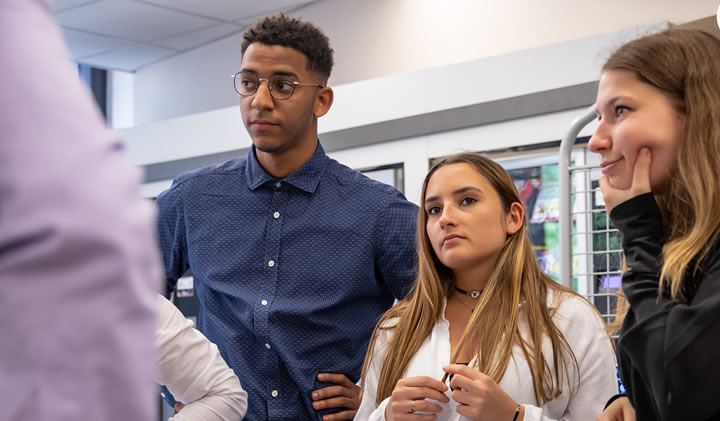While the range of difficulty and complexity varies between projects; at the core, there are questions engineering students and even professional engineers should ask to help get any project off to a good start.
Here are the 5 questions to keep in mind when initiating an engineering project that can guarantee a smooth teamwork between members:
1- What skills are needed to complete the engineering project, and do members have these skills?
Whether it’s a beginner or an advanced project, this question is essential because getting the right people with the right skills on a team is critical and needs to be done before launching a project.
It is one thing to identify the right people on a team, it’s another to help them understand why their specific skill will play a significant role in the progress and success of the project. Even in a corporate setting where people can be placed on or assigned to a team, gaining their commitment, involvement and passion will impact the overall dynamics between members and the deliverables of each phase of the project.
2- How will this project make a significant impact?
For decades, engineers have been working on creating innovative projects that tackle so many social, technological, and environmental issues, like:
- Eradicating extreme poverty and hunger
- Improving the overall healthcare technology
- Ensuring environmental sustainability
To any successful engineer, a project needs to not only be creative and innovative but also impactful on a local and perhaps worldwide level: making the world we live in a better place in as many industries as possible.
4th and 5th year students of ESiLV Engineering School explored how can new technologies support improvements in health outcomes through various industrial innovation projects as part of their curriculum.
3- What are the major phases in the project plan?
The answer to this question will compile everything that needs to be done and delivered. It also includes defining the end goal. From the big list that is first established, colleagues/coworkers will be able to identify the key steps and then group the other steps “inside” the major steps to organize the workflow accordingly.
4- What can be done from the beginning to ensure fewer risks during the course of the engineering project?
This requires thinking about the end of the project for a while. Brainstorming what kind of challenges might be faced is one of the best uses of time and team skills at the start of any project. Projecting steps to reduce or eliminate risks before they can occur will help any team avoid delays and a potential failure.
5- Who are the key players in this project?
While working with others, whether familiar team members or new, it’s important to decide who’ll work on which part of the project. While mapping it out, assigning tasks heads on will help start the work smoothly and without tension, especially for the purpose of preventing gaps and overlapping of responsibilities.
Check out other students’ projects at ESiLV graduate school of engineering.
This post was last modified on 9 January 2020 2:16 pm







